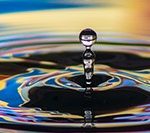Everyone likes to take pictures, but some people really love it enough to make a photography career their whole goal. Whether you plan to work for someone or create your own company, you are going to need to know a few things before you get into the business. Photography is a great hobby that could eventually be your life. With the right photos, you never know when a big corporation is going to want to buy them to use in their markups. Here are some things to know when pursuing a career in photography.
1. Find Your Niche
Are you a family photographer or a wedding photographer? You have to find out what you love to take pictures of the most and go with it. Some photographers take pictures for money. Yes, you want money, but it has to be about passion, too. You have to enjoy what you are doing, otherwise people are going to notice. When you find your passion, you will have fun in your job and this is exactly what you want.
2. Find or Build a Studio
Every photographer needs her space. You are going to find it easier if you have a place to work, whether it’s in your home or in a rented space. Photographers who don’t have this option for their clients often lose them to other businesses. This is an important step to make if you want to be taken seriously. If you don’t have a studio, you are going to have to rely on the weather.

“My Editing Setup” captured by Hans Woltering
3. Invest in Quality Equipment
You want to make sure that you have quality equipment. You don’t need to spend a fortune to get nice things, but you have to make sure that your gear works properly. You are going to want to show your clients that you are a professional, and this is partly done by having professional equipment.
4. Educate Yourself
You don’t have to open a business; photography can simply be your hobby. But if you want to make it a career, you are going to need solid skills. If you have the chance to attend photography workshops, jump at the chance. You’ll learn a lot in just a few sessions.
It’s fun being a photographer. You get to see a lot of interesting things that other people may never have the chance to see. Photographers are always in high demand, because you can’t take a picture of yourself.
About the Author:
Max Rout is an associate editor for Burwell School of Photography.
Like This Article?
Don't Miss The Next One!
Join over 100,000 photographers of all experience levels who receive our free photography tips and articles to stay current:










Thank you for sharing your tips, I’m currently trying to think if I should concentrate all my time on photography and quit my full time job, and your post is making me realize a lot of things.
First educate yourself with the angles, shots, find the meaning behind photos you have clicked.
A follow-up on my earlier response. I do not mean to dilute the intention or importance of the original poster. I appreciate his and any professional photographer who takes the time to help others jump into this difficult and intimidating field. I try and reach out as much as I can to help those who really want it.
I think we all have different ways of doing things. And the simple fact is, if you want to do “it”, just go do it. I had many people tell me (after receiving my first degree) that it was crazy for me to go spend more money in a “specialty focused” school in photography. I did not listen. I received my MFA at The Brooks Institute of Photography back in 1997. I have since hired many Brookies, and mentored many others trying to enter the field without education. Many of them have become very successful photographers. Some educated, some not. They have all picked very different paths, but are now successful just the same.
For me it was two things: 1) Get to a point where you know that you can execute whatever a client throws at you (wether you have don it before or not). 2) Being open to change. Seeing “change” as a challenge to how bad you really want to be a photographer. Being a photographer, IS being a problem solver. I do agree that having a specific focus of an industry helps in every aspect. But what I focus on covers many things: people, products, fine art, location production, controlled studio environments, architecture, landscape, stock photography, assignment commercial work…….. But all of it is focused around one central theme. Now look what I shoot.
http://www.LOOKphotography.com
I myself graduated with a strong focus in commercial advertising. I also loved the outdoors. I’m also color blind. I thought I would have a tough time, but I knew I would make it. The first 10yr of my profession was devoted to working for outdoor companies like Patagonia, North Face, Colombia. I eventually changed and adapted to my surroundings, and dove into a field that I had not worked in. But it was all around me. So, I adapted and made it work for me.
I never thought I would be doing what I do now. But I am, and I adjusted to the clients around me. My point is, that anyone can enter into any field in different way that someone else my say is the only way.
Some things are definite, though. You need to know how to shoot well……consistently. You need to know how to market yourself (so many different ways now with mobile devices). And you need to know how to start and run a smart business, big or small. It does not take much. I can do most everything from my iPad or iPhone. I don’t, but I can.
Most importantly, believe in yourself and what you know you can do. Wether or not you have ever done it before.
Just do it.
Cheers!
Eric is right, having a post production studio is much more important than having a studio to shoot in. Not only is it more efficient that way but you’re giving your customer an opportunity to shoot where they like or where you can best utilize natural light.
Totally agree with you Eric, good point.
I mostly agree with everything but suggestion number 2. You absolutely do not need a studio, ever. Even in the case of rain. I have shot plenty of things on rainy days outside. Great light if you know how and when to use it.
I have built a very successful career promoting my two companies ability to create a studio in any location. That is “if” you actually need a studio. What you need is gear, and you need to know how to use it. I have shot small product, fashion, cars, to 10,000sqft homes, and never once owned or rented a studio.
What you do need in place of a studio, is a place to run your business in. Mostly for post production, making calls, research online, organizing all your projects and building your client leads. And I can actually still do all this from the road. And you also really need a great backup solution for your images, and a great online solution to get your clients their images quickly.
I would hate for anyone out there to think they can’t move anywhere without a studio. It’s simply not true. Clients will come if you do focus on what you love shooting. And just keep doing it!